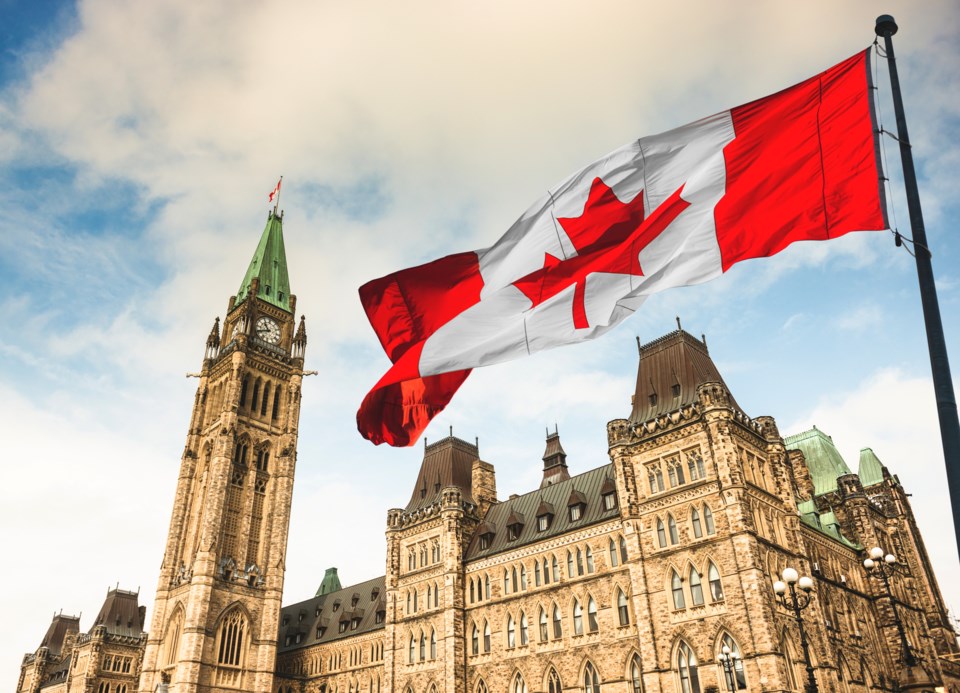A House of Commons committee believes Canadian public pension funds, including British Columbia’s, should stop investing in Chinese companies that abuse human rights.
“Research and reporting from non-governmental organizations, journalists and academics has revealed that some Canadian pension plans are investing in such companies through passive investments, running contrary to the values of Canadians,” said the Wednesday report from the Special Committee on the Canada-People’s Republic of China Relationship.
The committee’s study on the exposure of Canadian investment funds to human rights violators in China was triggered by Hong Kong Watch’s 2021 research. The non-governmental organization found Western governments, corporations and institutional investors — including Canada Pension Plan Investment Board, the Caisse de depot et placement du Quebec, and the B.C. Investment Management Corporation (BCI) — were investing more in China, despite the mass-incarceration of Uyghur Muslims in Xinjiang, also known as East Turkestan.
“These included Chinese technology firms that are blacklisted by the United States due to their connections to internment camps in Xinjiang, as well as other major tech companies like Alibaba and Tencent that are complicit in oppression within the PRC,” the report said.
While the pension funds work to maximize return for investors, the committee found there are no measures that prevent them from investing in Chinese companies that are directly or indirectly involved in human rights violations.
Hong Kong Watch singled out BCI in 2021 for investing in surveillance camera company Hangzhou Hikvision Digital Technology Co. Ltd., calling it an example of “bankrolling the oppression” in Uyghur Muslim prison camps.
BCI executive vice-president Daniel Garant testified to the committee last May that BCI completes an environmental, social and governance (ESG) risk review prior to making investments and it was “actively engaging with index providers to improve what they put in the index.”
BCI manages $250 billion worth of investments for 2.5 million B.C. workers and 715,000 pension plan beneficiaries.
The 2023 BCI investment inventory shows a $33.26 million market value, as of March 31, for its shares in Hikvision.
It also listed shares in China Merchants Bank Co. Ltd. ($39.9 million), China Mobile ($252.88 million), China Construction Bank Corp. ($61.44 million) and Tencent Holdings Ltd. ($350.33 million), the parent of Chinese-language social media app WeChat, recently banned from federal government devices for national security and privacy reasons.
At the May 8 meeting, committee member and Conservative MP Garnett Genuis took issue with Garant starting his testimony with a First Nations land acknowledgement and then ducking questions about BCI investments in Hikvision and its supply of equipment to spy on Indigenous people in Xinjiang.
Garant testified that BCI was following the lead of other pension funds who are re-evaluating exposure to China or pausing some investments.
In its report, the committee chaired by Surrey Liberal MP Ken Hardie recommended the federal government study making an official list of companies deemed unsuitable for investment.
It also wants the federal government to combine forces with provinces to list companies in China that public pensions should not invest in due to risks to national security, corruption or gross human rights violations.
Likewise, the report suggested Canada work with the U.S. and other allies to develop a list of banned investments in human rights abusers, pass laws to eliminate forced labour from Canadian supply chains and reinforce the ban on imported products made with forced labour.
In February 2021, by a vote of 266-0, the House of Commons declared the Chinese government was committing genocide against Uyghurs. Then foreign affairs minister Marc Garneau was the only Liberal cabinet minister who showed up for the vote, but he abstained.
In March of 2022, in the wake of Russia’s invasion of Ukraine, BCI said it was actively working to sell the remaining $107 million of Russian securities under its management.





